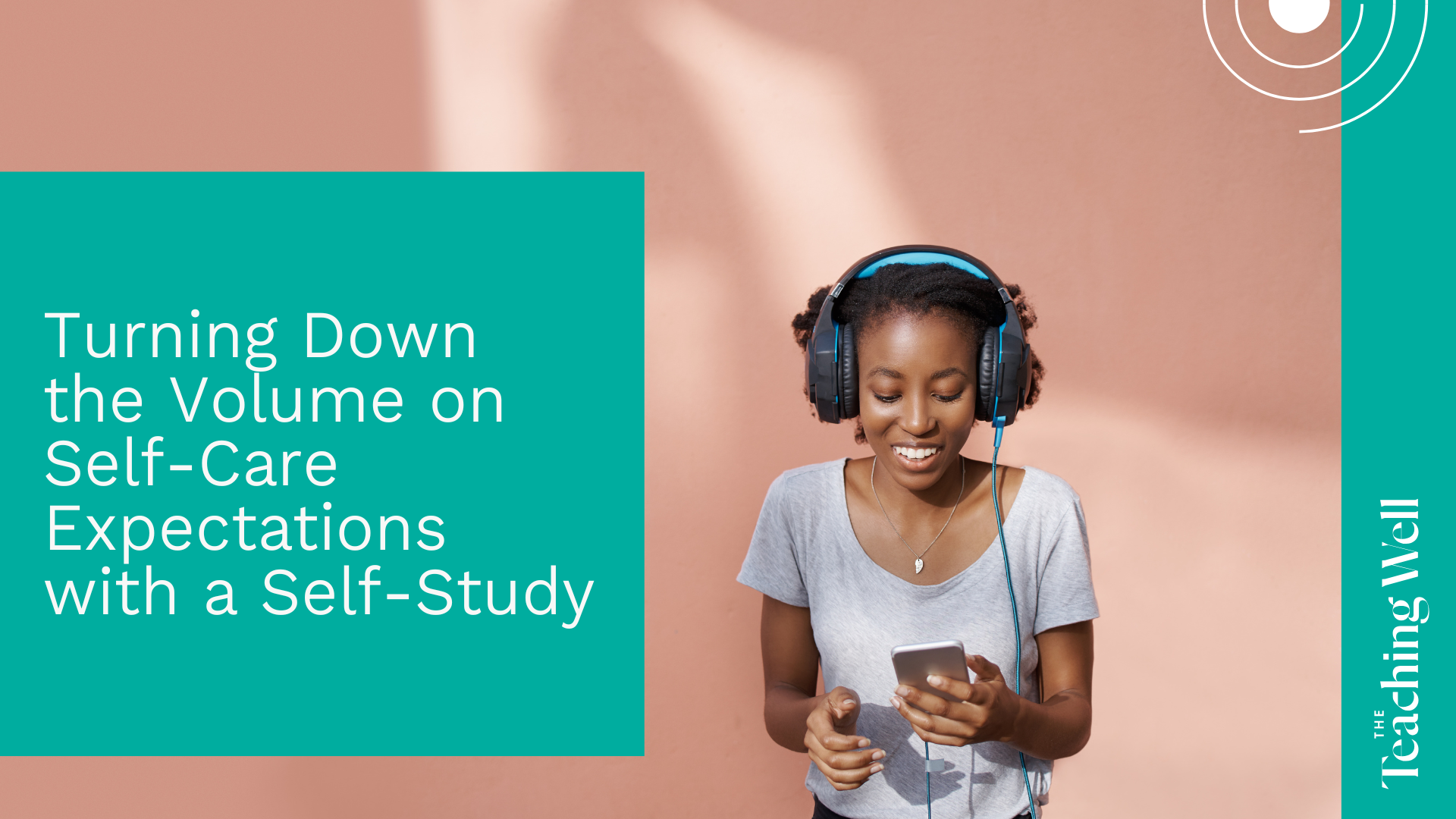Turning Down the Volume on Self-Care Expectations with a Self-Study
In Episode 3/Season 3 of Gather at the Well titled, Turn Down the Volume: Boundaries, Stress and the Architecture of Recovery, we explore several key concepts related to how stress exists in our body and ways to build responsive, not reactive strategies to keep us steady in moments of challenge.
Stress signals are actually your body's way of communicating unmet needs. Instead of fighting these signals, what if we listened and responded with compassion? We can do this through Self-Study.
Self-study is the practice of independently exploring, researching, and learning about a subject using available resources such as books, online materials, videos, or personal experiences.
(For our readers holding it down at school sites, this is analogous to a Student Support Team (SST).)
By compassionately observing your stress patterns and asking yourself questions, you can recognize fatigue cues before they escalate to burnout. This isn't about creating or enacting a perfect self-care checklist, but engaging in an ongoing conversation with your body about what it truly needs and responding.
Maybe you’ve already done this Self-Study and have built out your own Sustainability Toolkit. Maybe you’ve even built steady and strong habits of self-care that might include a morning routine, a post-work ritual, and small moments throughout the day in which you notice and tend to your breath and body. But rather than going through the motions of your self-care habits, ask yourself if those are merely more to-dos. What would really serve you in this moment? Can you do that instead?
For example, let’s say your self-care habits include a morning meditation followed by a workout, but lately you’ve been having to cover for a teacher vacancy at your school. This means you are doing an extra job, putting in extra time, and feeling run down as a result. You can tell you are about to get a cold. Maybe what you need more than an early morning workout is time to sleep a little more. Or maybe instead of a seated meditation, it would feel just as good to take three deep intentional breaths and acknowledge what is present in the moment with self-talk like, “This situation feels hard because it is hard” and “This situation is also temporary.” You’d still get the benefit of deep breaths, but without spending as much precious time.
By turning down the volume, even on your own self-care expectations and really listening to your body's signals, you can transform relentless stress into an opportunity to pause, tune in and inform your next best move.
If you are ready to engage in Self-Study, you might ask yourself these questions:
Where am I feeling this stress in my body?
Is there a practice I can do to help relieve this physical, mental, and emotional sensations of stress?
When I think of my self-care habits, which are bringing a sense of “I should” or regret that I “haven’t gotten to…”?
If you could do only one thing from the menu of self-care options, what would be the most supportive today?

